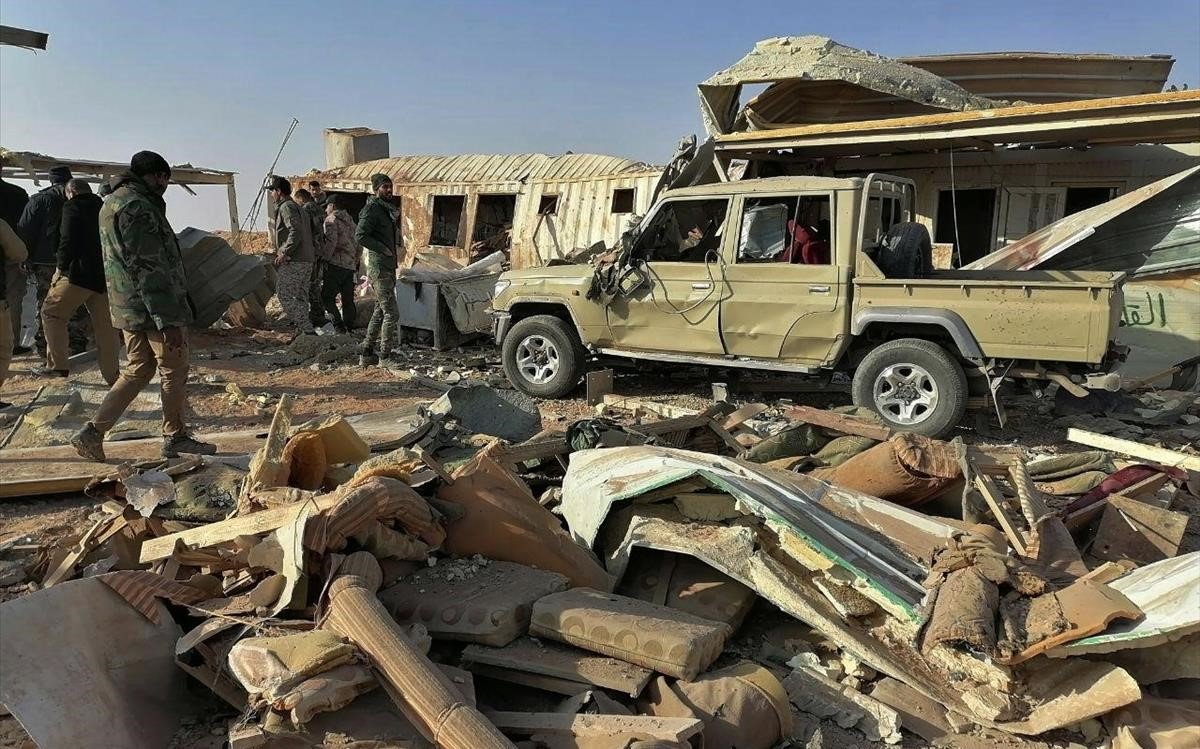
U.S. interventionism may actually be helping to accelerate Iraq’s progress in becoming a failed state.
After years of claiming that Iraq is not a failed state thanks to the United States’ presence, it is now possible that U.S. interventionism may be actually helping to accelerate Iraq’s progress in becoming a failed state. Iraqi territory is buffeted by its two great allies, the U.S. and Iran, enemies of each other. Sooner rather than later, Iraq risks becoming a battlefield for those who are theoretically supervising its survival. At least, this is the risk with operations such as the latest airstrike on five facilities of a pro-Iranian group that is also integrated into the Iraqi Army through Popular Mobilization Forces, a coalition of pro-Iranian militias.
The situation is extremely complex: Iran supports Iraqi Prime Minister Adel Abdul Mahdi, who has prompted street protests by people tired of incompetence and rampant corruption in the government, which has been in office for one month. The pro-Iranian facilities that were bombed are organizations that fight against what remains of the Islamic State – which also attacks the U.S. – but are simultaneously the executing arms of Iranian strategy in the region and allies of Bashar Assad in Syria. There seems to be no way out of the maze, and, by all appearances, Donald Trump’s decision to denounce the nuclear agreement with Iran has helped to destabilize the region. Trump favors opportunistic alliances in which Muslim combatants who join one of the two branches of Islam often end up as a secondary ingredient, or cover up historic political rivalries and very specific objectives.
Justifying the Use of Force
The United States’ determination to favor Saudi Arabia, its greatest ally in the region, over Iran, whom the U.S. is challenging for hegemony of the Persian Gulf area, crucial for the stability of the energy market, is noteworthy. At the same time, one of the fundamental pillars of the security operation designed by the U.S. for the Near East is Saudi Arabia, and one of its potential weak spots is Iran, the ayatollah republic determined to restart its nuclear arms race. All this explains the White House’s use of force and its decision not to hold off if harassment regarding the U.S. presence in Iraq continues. Meanwhile, it continues a hidden conflict with Iran to influence the naming of Mahdi’s successor.
There is nothing particularly new about this latest episode in Iraq’s troubled history. The mission that George W. Bush declared was accomplished in May 2003 is far from being successfully completed 16 years later. On the contrary, the Near East political region has worsened beyond all expectations. Iraq has become the chosen land where all of the contenders in the region seek to impose their strategy, and, at the same time, where there is the increasing risk of a domino effect adding new layers of insecurity. For Trump, however, no price is too high if it achieves the nuclear deactivation of Iran.

Leave a Reply
You must be logged in to post a comment.